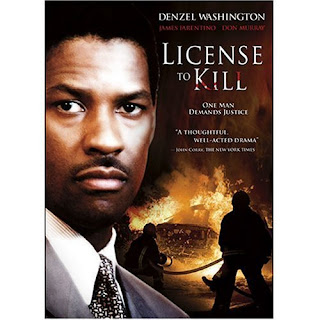About five or six times a year, I get migraine headaches.
Migraines are all a bit of a mystery on a medical level – the triggers and symptoms vary from person to person, and the exact cause of them is still not quite clear – but they’re also rather oddly viewed on a social level; a lot of people seem to equate a migraine with a very bad headache, so people will say ‘I think I’m getting a migraine’ when it’s really not the case.
‘Classic migraines’ are preceded by what’s known as an ‘aura’ – a period of blurry or otherwise distorted vision; in many cases (and in mine) what’s called a scotoma appears as a metallic-looking disturbance within the field of vision, shimmering as if moving or reflecting light. It’s an odd thing, but to be honest since a lot of migraines are accompanied by feelings of nausea or active vomiting, it’s only one of many things that a person with a migraine has to go through.
In a lesser number of cases (again, including me), the onset of a migraine is accompanied by pins and needles in the hands and face, difficulty with speech, and a general sense of confusion. It’s always nice to feel special or part of a limited group, but on this occasion I’d rather not, as this is a profoundly weird stage when a migraine hits – before now, I’ve been lying down in the dark, and though I’ve been able to think ‘My name is John’, there’s some sort of scrambling going on in the language centres of my head, rendering any attempt to say the phrase more like something you’d expect to hear from Joseph ‘John’ Merrick.
Having a migraine is a strange experience, and it’s far from pleasant. There are a number of tablets available which treat migraines (though I’m not aware of any which prevent them), and I’ve tried the herb feverfew, but for me it seems the best cure is just to lie in a darkened room, away from light or noise or strong smells, until it passes.
Anyway, the reason I bring this up is because I recently read a ‘beginner’s guide’-type booklet on the subject (you can get a copy of the booklet here). If you or someone you care about does have the misfortune to have migraines, it might be useful. If you’re a more seasoned migraine sufferer, or just keen to learn more about this strange phenomenon, you could do far worse than to read Oliver Sacks’s book on the subject, though a ‘learned reflex’ on my part means that the illustrations of the scotoma make me feel slightly as if I’m going to be unwell.
There was one bit of the booklet which I thought was rather misjudged, though; page three refers to famous people who suffered from migraines, and by way of historic examples, they offer Julius Caesar, Vincent van Gogh, and Elvis Presley. High-profile chaps, all three, but let’s just take a moment to examine their fates, shall we?
– Caesar died after being stabbed repeatedly by people he’d thought were his allies.
– Van Gogh suffered depression for much of his life before fatally wounding himself with a gunshot to the chest
– Presley died on the toilet with what appears to have been a violent heart attack, amongst other medical conditions
Rather a running theme of tragic, painful death there – hardly makes a ‘migraineur’ feel as if their story’s going to end happily, does it?
 This picture, then, is of an advert for the new Chris Ryan novel, which I spotted at an Underground station in central London. Two things about it that make me go hmm:
This picture, then, is of an advert for the new Chris Ryan novel, which I spotted at an Underground station in central London. Two things about it that make me go hmm:







